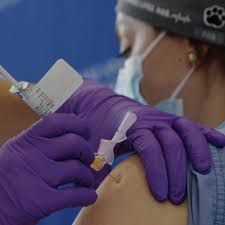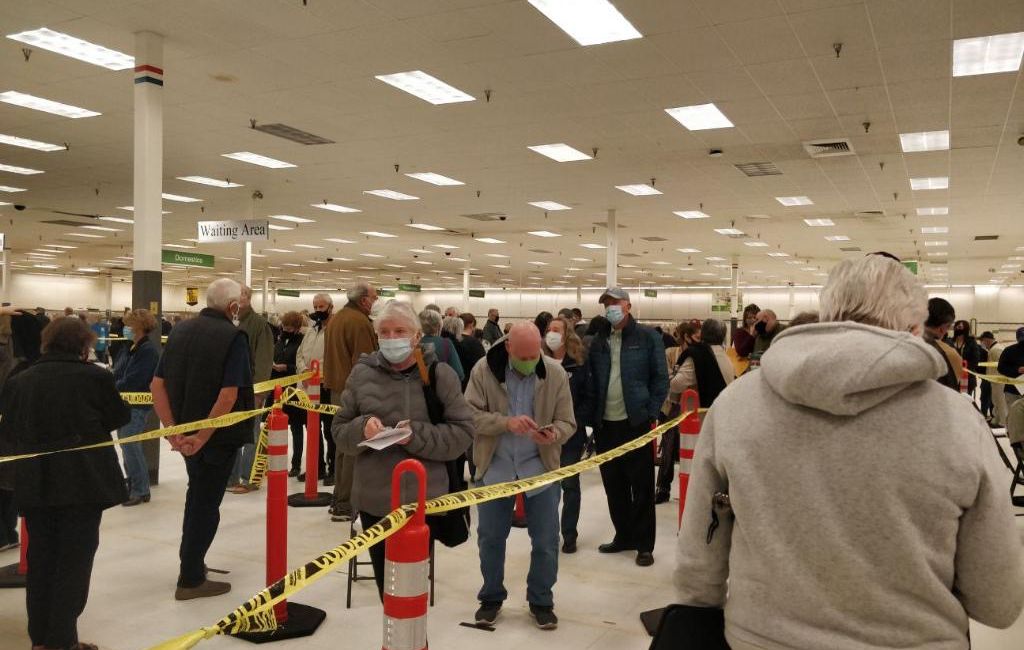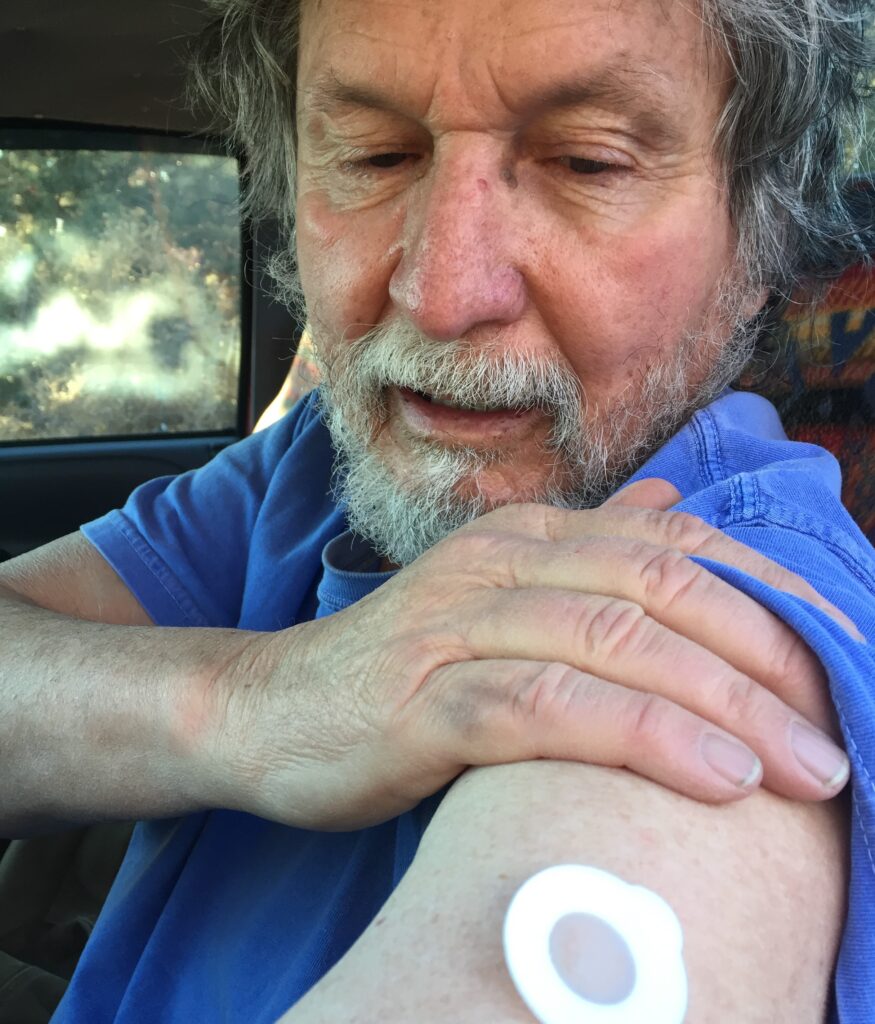To Vax or Not to Vax
I have been deep into the subject of the Covid 19 vaccine for several months. As one of several facilitators under contract to Johns Hopkins I am zooming with community members around the country listening to their thoughts about the vaccine. Johns Hopkins is interested in learning how people make decisions about whether or not to take the vaccine. The project has many parts, including a national survey and regional focus groups, but my role involves what they call “vulnerable communities” (Latinx, Native American, African American).

We are working with seven communities in the East, South and West. About 30 community members from each of the sites are compensated to take part in a series of three meetings over four months. The groups are recruited for diversity in age, gender, and point of view, resulting in conversations that are rich as participants share and listen to each other. We are particularly interested in hearing their experiences with Covid, their sources of information, who they trust and who they don’t, and the values that influence how they make that decision about rolling up their sleeves. The first round of meetings was in December, just before the vaccine rolled out. The second round is happening now at the end of January and early February, when the vaccine is available, sort of, for some people in certain groups, in certain places. The last round of meetings will be sometime after April, when hopefully most of those we are talking with will have had the chance to be vaccinated if they want to.
It has been an honor to spend time with these groups of community members, by zoom of course. I’ve been moved by their willingness to share painful stories of loss and suffering in their own families, and impressed with their honesty about their fears and the motives behind certain choices about whether or not to take the vaccine. There have been tears, mine among them.
Among the Native and African American communities the history of exploitation and abuse of their people by both government and the medical profession is very much front and center in the decision-making about the vaccine. For the most part, they are not anti-vaxxers. Most get an annual flu shot and take their children for regular vaccinations. But their very real historical trauma triggers a deep distrust of this vaccine. Its development seems rushed, and the eagerness to get it into the arms of those most vulnerable (whether or not that is happening in reality) triggers memories of the US cavalry bringing small pox-laced blankets to the Dakotas in the late 19th century, and the Tuskegee syphilis research done on African American men as late as the 1970s. We heard “never again,” and “over my dead body” when we asked about likelihood to take the Covid vaccine, even if that dead body might be theirs. Some said they might take it after millions of others had taken it first. Some said they never would.
Although initially reluctant, many in the Latinx and Native communities confessed they might take the vaccine in order to protect elders in their family and the community at large. For Native Americans especially this was compelling. “We lose an elder, we lose more than someone we love. We lose a piece of our culture. The thread is broken and our way of life, our language is at risk.” Two young men on two different reservations said they would absolutely not risk taking the vaccine because even if they got sick it wouldn’t be that bad. After spending time on the screen, listening to other community members and thinking about their elders, they each said the same thing, “I guess I’d take one for the team. Someone has to be first, might as well be me.”
When asked about sources of information that they would trust, the majority identified relatives, friends, community leaders, or their own doctors. “I have an aunt who’s a nurse. I trust her.” “Our tribal leader will know what we should do.” “My son is smart. I’ll do what he says.” An African American woman probably spoke for many: “If Oprah Winfrey or Tyler Perry tells me to get the vaccine, I’m not listening to them! I’ll believe someone close to home, not some big star.” Some were amused that public service announcements and news reports always show “a black nurse sticking the needle in a black arm,” as if that would convince them to line up.

One of the groups includes immigrants from Mexico and Central America living on the East Coast. These meetings are in Spanish and differ in another way from the others. Almost 100% of participants want the vaccine, and they want it now. They are desperate to get back to work. Little else matters.
And for some it’s complicated. A young woman feels it is her duty to get the vaccine and wants it, but she is pregnant and her doctor advised against it. “I’m embarrassed. I feel guilty. I want to do my part, but I can’t” and we saw her hold her belly on screen. Another woman finally let her son return to basketball practice after months of isolation. The very next day the coach came down with Covid. She was waiting for a test for her son. “I had to let him go back. He was so miserable. But now maybe he’ll get sick.” She slumped in her chair, shaking her head, and added “maybe he should get the vaccine so he can have his life back.” Some were in conflict with family members, feeling pressured to make a decision that didn’t feel right.

For the last several weeks I have been immersed in vaccine decision-making as I have listened to community members from a wide range of demographics and geographies grapple with the decision to vax or not to vax. I have heard so many passionate voices on all sides, pondering the questions, answers evolving. I have been the neutral facilitator, outside observer. But now I find myself faced with the decision myself, and here is my confession.
When it first was available in Santa Fe I did not rush to get it. I’m in group 1b, eligible after the front-line workers, but I was not sure. Maybe having heard all the fears and reluctance was getting to me. I told myself “well, it wouldn’t hurt to wait a while. I don’t need to be first. I’ll take my time and see how it goes.”
Then I got a call from my ex-husband, his voice triumphant, filled with excitement: “I got the vaccine, I was one of the first…” and he went on to tell me how he stumbled into a line at Sam’s Club and got his first dose, second to follow in a month.
Suddenly, I had to have that vaccine! I registered on the New Mexico Department of Health website, got my code and eagerly awaited notice of my appointment. Nothing. I was impatient, ready to jump in the car…
…until I heard from a friend in Japan. She is a pharmacist and there is no way that she or her family is getting the vaccine. The long term effects of the new RNA-based vaccines are unknown, she warned. They will take their chances….
….And so am I! I don’t care if the Department of Health never calls me. I’m not getting anywhere near that shot!
Then, on a walk I ran into a neighbor. She’s over 80 and had just come back from her first shot. She was thrilled and told me a long story about how hard it was to find! Calls to the hospital, doctors, department of health. No one could help her. Then a friend told her that Albertson’s supermarket pharmacy had it. She called, was on hold for an hour, slammed down the phone and jumped in the car and drove there. They gave it to her on the spot….
…Okay! I was on it. I aborted my walk, hustled home and called Albertson’s. Only had to wait 40 minutes and was told that things had changed and now they were making appointments from the state list, no more dropping in. I said thanks and hung up. If no one wanted to give me a shot, I just wouldn’t get one. I didn’t want one anyway….
…Until, my husband got a call from the VA to come in next Saturday for the vaccine. How come he gets it and I don’t? How come I’m not a veteran? What about facilitators? Don’t we count?
There is such a thing, I have learned, as scarcity mentality. Once you think there is not enough of something, you want it desperately. My decision-making may be just that simple-minded. I can take it or leave it — until I think you’re getting it all and there won’t be any left for me.
And just think, my profession is helping people make clear-headed, fact-based decisions. I hope you see the irony. I do.

